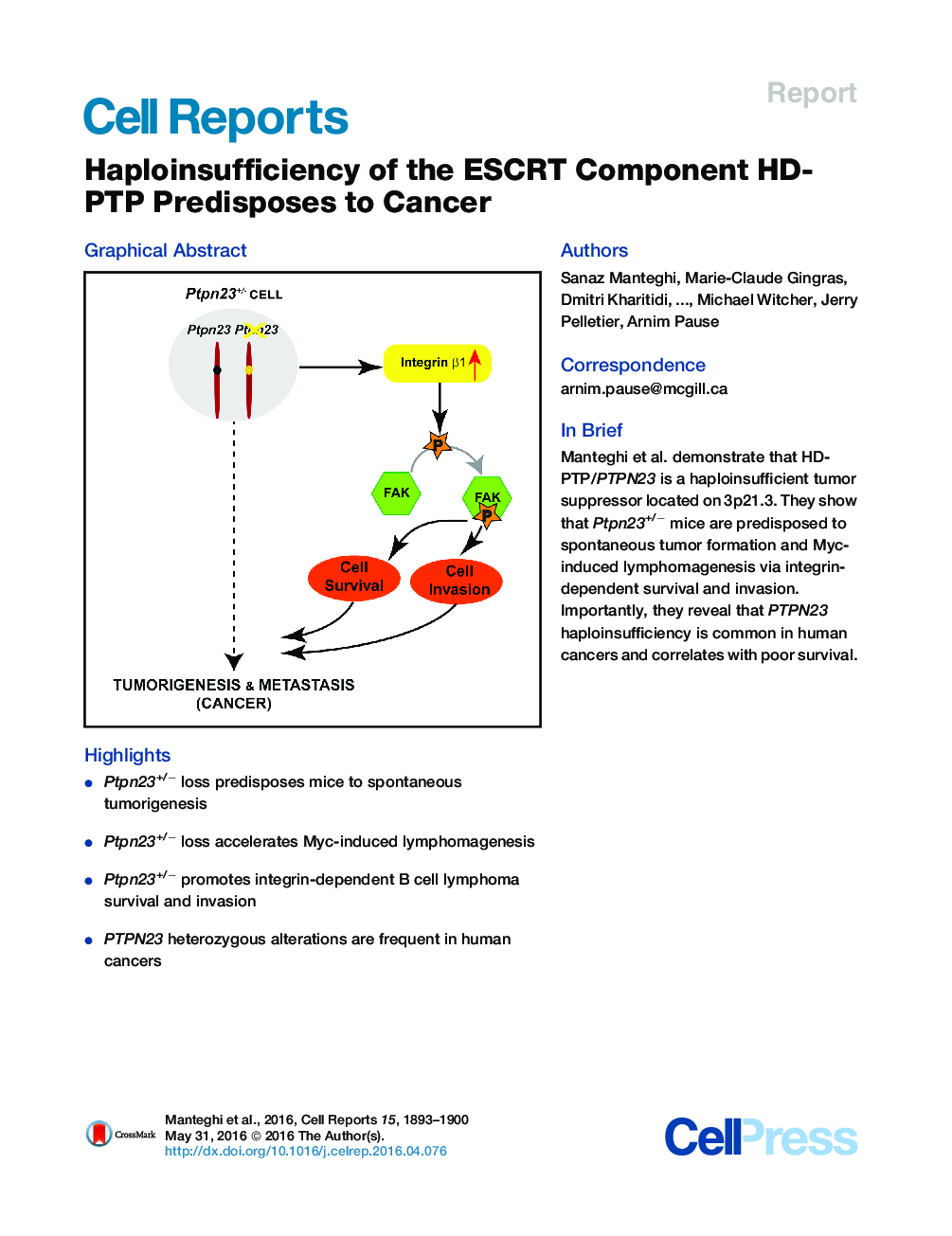| Article ID | Journal | Published Year | Pages | File Type |
|---|---|---|---|---|
| 2038982 | Cell Reports | 2016 | 8 Pages |
•Ptpn23+/− loss predisposes mice to spontaneous tumorigenesis•Ptpn23+/− loss accelerates Myc-induced lymphomagenesis•Ptpn23+/− promotes integrin-dependent B cell lymphoma survival and invasion•PTPN23 heterozygous alterations are frequent in human cancers
SummaryEndosomal sorting complexes required for transport (ESCRT) drive cell surface receptor degradation resulting in attenuation of oncogenic signaling and pointing to a tumor suppressor function. Here, we show that loss of function of an ESCRT protein (HD-PTP encoded by the PTPN23 gene, located on the tumor suppressor gene cluster 3p21.3) drives tumorigenesis in vivo. Indeed, Ptpn23+/− loss predisposes mice to sporadic lung adenoma, B cell lymphoma, and promotes Myc-driven lymphoma onset, dissemination, and aggressiveness. Ptpn23+/−-derived tumors exhibit an unaltered remaining allele and maintain 50% of HD-PTP expression. Consistent with the role of HD-PTP in attenuation of integrin recycling, cell migration, and invasion, hemizygous Ptpn23+/− loss increases integrin β1-dependent B cell lymphoma survival and dissemination. Finally, we reveal frequent PTPN23 deletion and downregulation in human tumors that correlates with poor survival. Altogether, we establish HD-PTP/PTPN23 as a prominent haploinsufficient tumor suppressor gene preventing tumor progression through control of integrin trafficking.
Graphical AbstractFigure optionsDownload full-size imageDownload as PowerPoint slide
